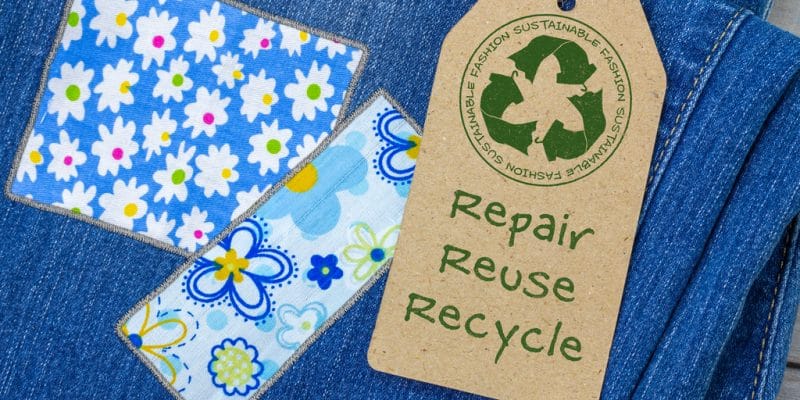While 140,000 tonnes of second-hand clothes, also known as "mitumba", are imported from Europe, the United States of America and Asia before being incinerated or dumped in landfill sites, fashion designers are learning about textile recycling in Nairobi under the aegis of the CXP Africa concept, which specialises in the design and implementation of sustainable development projects. This initiative will eventually help limit the risks of this industry on health and the environment.
According to the World Bank, approximately 20% of global water pollution is caused by the textile and fashion industry. In this context, CXP Africa, which specialises in the design and implementation of sustainable development projects in Kenya, has just trained 12 young women designers on the impact of textiles on the environment and techniques for transforming this material into ecological clothing.
“The main objective of the project was to give them a series of lessons on recycled design as a method and tool for reducing textile waste, and also as a way for them to channel their creativity and love of fashion into creating pieces from textile waste,” explains Robin Mugani Njuno, the project leader. The Kenyan designer herself presented her recycled collections made entirely from post-consumer textile waste at the “Completely Out of Fashion” show on 04 April 2022 in Nairobi.
The project is funded by the Estonian Centre for International Development and co-financed by the European Regional Development Fund (ERDF). The designers trained by Estonian fashion designer Reet Aus, an expert in recycling, are accompanied by three fashion design students from the Estonian Academy of Arts who are visiting Kenya as part of an exchange programme with Moi University in Eldoret in the west of the country.
Read also-AFRICA: AfDB Launches 2nd Sustainable and Circular Fashion Competition
In an effort to promote the concept of eco-friendly fashion, many designers are advocating the consumption of locally made eco-friendly clothing to reduce their carbon footprint. Most of these eco-friendly or organic clothes are labelled, as they are made from biodegradable cotton and do not contain substances that are undesirable for health or skin. In this way, their impact on the environment is considerably reduced.
Benoit-Ivan Wansi






